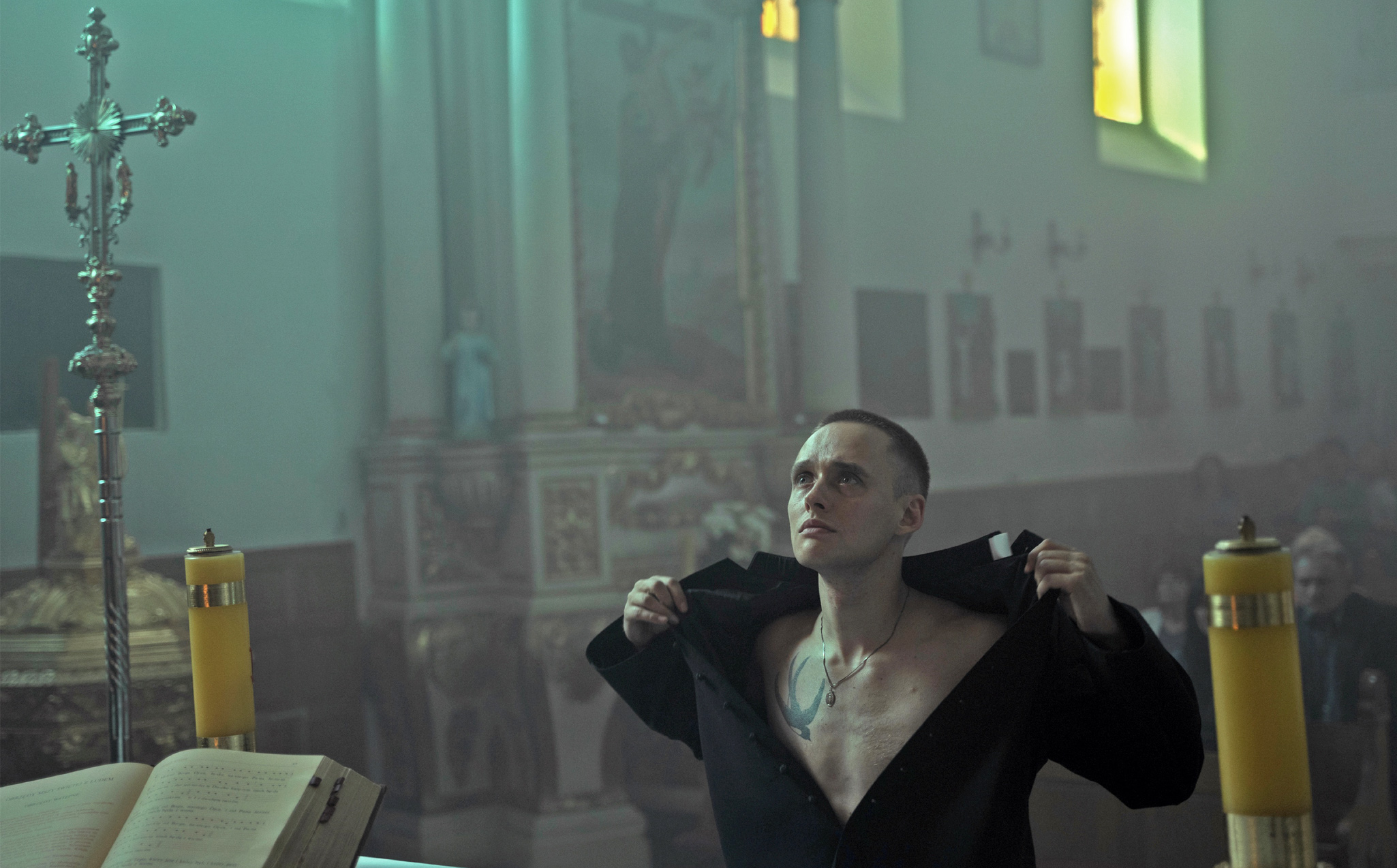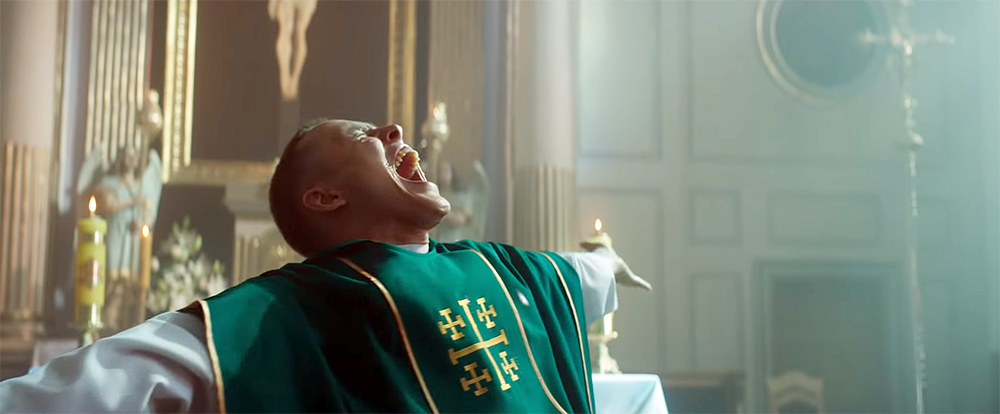Review: CORPUS CHRISTI

Must-see Polish Drama Packs a Spiritual Wallop
Streaming exclusively on the Criterion Channel, Jan Komasa‘s Corpus Christi (in Polish: Boże Ciało) represents the sort of compelling character- and theme-driven drama that American cinema, even on its recent best day, seems incapable of contemplating, much less producing and distributing to a wide audience.
That’s not only studio product but also includes so much of the recent era’s so-called indie film, tending as is its wont toward narcissistic and executions of baroque style in search of depth, or perhaps most unhelpful of all, ad infinitum woke-politic agitprop. None of these egomaniacal navel-gazing approaches to storytelling come close to offering satisfying questions or the possibility of universal selfless truths. (Exception to the rule: something like The Florida Project, which is real and resonant as the day is long.)

Bartosz Bielenia as the conflicted Daniel
PLOT: While a young criminal, Daniel (Bartosz Bielenia), on the road to reform holds a dream of joining the seminary and becoming a priest, not even his own juvie hall spiritual advisor, Father Thomasz (Łukasz Simlat), offers him hope than any will take a criminal on parole.
Later, the implication in a moment of confession before a group of strangers is that Daniel’s crimes were serious indeed. Forgiveness being a principal tenet of Christian faith, the movie’s intention offers both Daniel and the audience a chance to explore the concept of forgiving what seem like the most egregious of sins.
Daniel’s impending parole requires him to take a work-release job at a sawmill a few towns away, but when a chance decision on his journey—stopping to pray in a nearby church instead going into the sawmill—causes him to be mistaken for a traveling priest, his youth, faith and drive to serve God prompts him, ordained or not, to ‘go with it.’
 As it happens, however, the local priest is old, secretly alcoholic and ailing. When he asks if Daniel will stay on for a few days while he travels to the city for medical tests, the young imposter agrees.
As it happens, however, the local priest is old, secretly alcoholic and ailing. When he asks if Daniel will stay on for a few days while he travels to the city for medical tests, the young imposter agrees.
Inwardly terrified, the young man’s first instinct is to bolt from the lie, but a locked window prevents him from doing so—fate has decreed that he must minister to these people. The details of Daniel’s background are thin and murky, his approach to the pulpit is unorthodox and grasp of liturgy is competent only thanks to his smartphone and the internet, but, hey—nobody suspects a thing. After all, who would impersonate a priest?
Better still? His messages resonate with the people, who have been in a clear state of conflicted spirituality—a recent fatal drunk-driving accident between a single driver and a carload of teens has left the community riven over the idea of forgiving the driver, going so far as to disallow burial on the church grounds. Daniel’s mission is to heal this rift, to give these people permission to release the energy and to move on—it isn’t only the victims of the car accident who are no longer living.
 As an astute observer of this type of redemptive story will suspect, the good Daniel does helps heal wounds and open hearts, to a certain extent. But from within all lies must the truth eventually emerge, and at last Daniel is forced to face the fact that his faith will not be enough in the eyes of the church to allow a member of the laity to offer sacred rituals like consecrations, absolutions and last rites.
As an astute observer of this type of redemptive story will suspect, the good Daniel does helps heal wounds and open hearts, to a certain extent. But from within all lies must the truth eventually emerge, and at last Daniel is forced to face the fact that his faith will not be enough in the eyes of the church to allow a member of the laity to offer sacred rituals like consecrations, absolutions and last rites.

Polish auteur Jan Komasa
This quiet movie, which builds to an explosive, searing ending sequence that is difficult to watch but exhilarating in execution, prompts us to ask not only about the nature and necessity of forgiveness, but also the nature and mystery of the above-mentioned fate—how do we know when our darkest moments are merely God opening the door that leads to the light? The movie’s answer is simple: always. Highest recommendation.
About dmac
James D. McCallister is a South Carolina author of novels, short stories, journalism, creative nonfiction and poetry. His neo-Southern Gothic novel series DIXIANA was released in 2019.